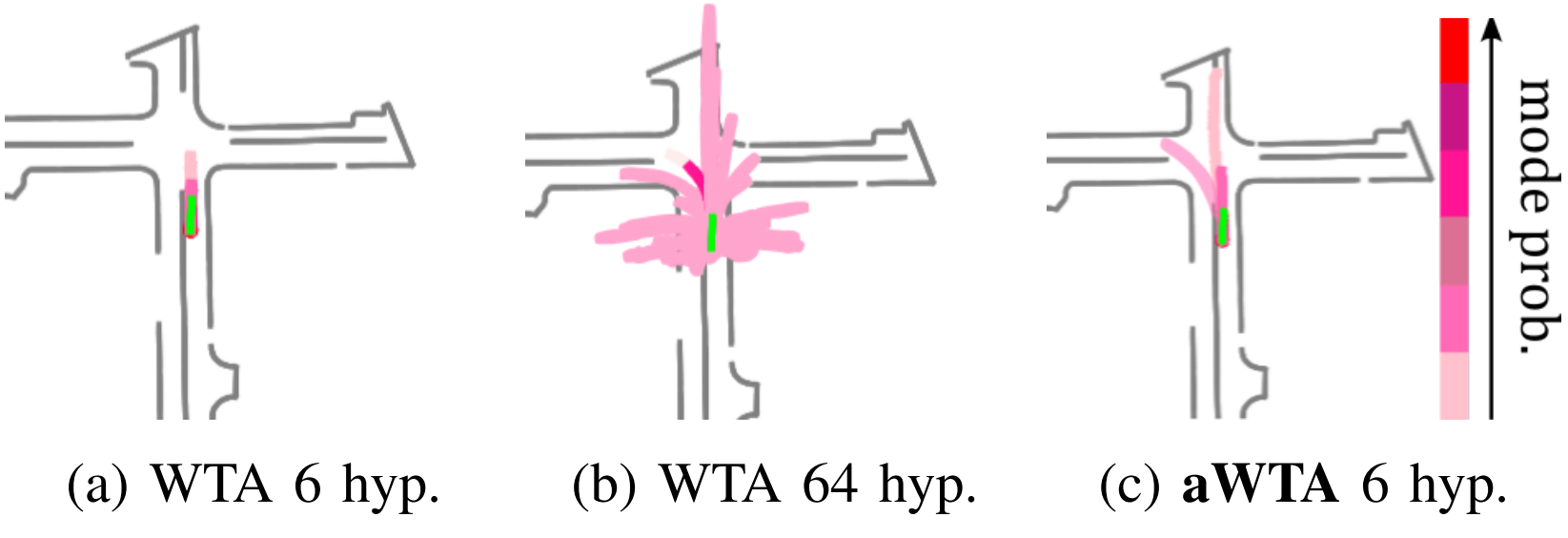Annealed Winner-Takes-All for Motion Forecasting
Yihong Xu Victor Letzelter Mickaël Chen Éloi Zablocki Matthieu Cord
ICRA 2025
Abstract
In autonomous driving, motion prediction aims at forecasting the future trajectories of nearby agents, helping the ego vehicle to anticipate behaviors and drive safely. A key challenge is generating a diverse set of future predictions, commonly addressed using data-driven models with Multiple Choice Learning (MCL) architectures and Winner-Takes-All (WTA) training objectives. However, these methods face initialization sensitivity and training instabilities. Additionally, to compensate for limited performance, some approaches rely on training with a large set of hypotheses, requiring a post-selection step during inference to significantly reduce the number of predictions. To tackle these issues, we take inspiration from annealed MCL, a recently introduced technique that improves the convergence properties of MCL methods through an annealed Winner-Takes-All loss (aWTA). In this paper, we demonstrate how the aWTA loss can be integrated with state-of-the-art motion forecasting models to enhance their performance using only a minimal set of hypotheses, eliminating the need for the cumbersome post-selection step. Our approach can be easily incorporated into any trajectory prediction model normally trained using WTA and yields significant improvements.
Video
BibTeX
@inproceedings{xu2025awta,
title={Annealed Winner-Takes-All for Motion Forecasting},
author = {Yihong Xu and
Victor Letzelter and
Mickaël Chen and
\'{E}loi Zablocki and
Matthieu Cord},
booktitle = {ICRA},
year = {2025}
}
